Female Judges In Iran Not Authorized To Sign Rulings: MP
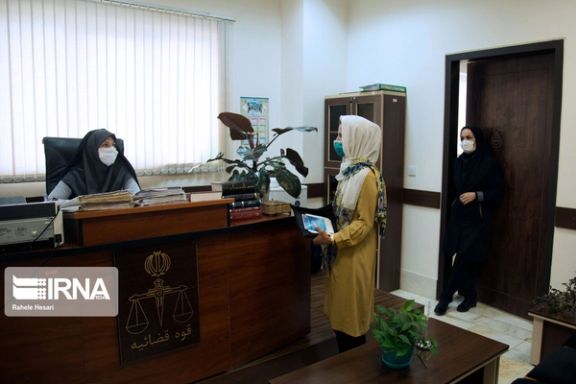
The head of the Research Center of Iran’s Parliament says there are 121 female judges in Iran, but they are not authorized to sign a verdict.

The head of the Research Center of Iran’s Parliament says there are 121 female judges in Iran, but they are not authorized to sign a verdict.
According to Babak Negahdari, women in the Islamic Republic can preside in family court and draft the verdict, but the final ruling has to be signed by a male judge.
After the 1979 revolution, in addition to the hijab, the Islamic republic forced all female employees of the court system out of their jobs.
Women were only given supportive roles and no leadership positions in the governmental institutions after the revolution.
“During the following years, parliamentarians made amendments to the law on the conditions for the selection of judges and passed the family protection bill, making it possible to attract and employ women as advisory judges in family courts, but they did not give women the right to sign verdicts,” added Negahdari.
There are no definitive figures on the number of women working anywhere in the Iranian judiciary today.
On the other hand, it was estimated that eight out of every 100 judges are women. In the past few years, fewer than 30 percent of participants in the judges' exams have been women, for what little roles remain available to them. Putting these scattered statistics together, it is evident that women have no place in the top echelons of Iran’s judiciary.
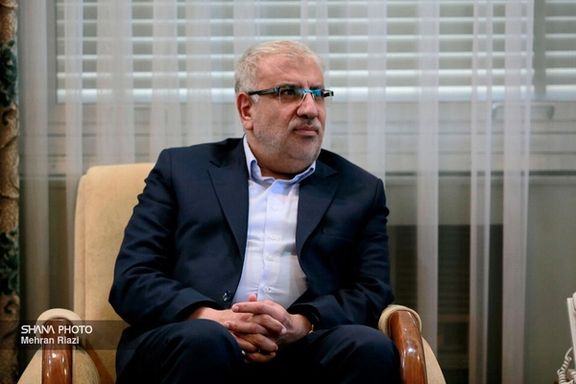
Iran has invested a total of $28.8 billion in its oil industry in past two years despite financial and technical strains, oil minister Javad Owji said Saturday.
Iran’s oil exports are under third-party sanctions by the United States and certain technologies are banned from being sold to Iran. Owji said these factors complicate much-needed investment in the country’s oil and gas industry.
Since assuming office in 2021, Owji has repeatedly said that the energy sector needs close to $250 billion in investments to stay productive and compete with other oil producers in the region. Saudi Arabia has invested hundreds of billion in the past 15 years.
However, various international sanctions have limited Iran’s financial resources, and Western sanctions on technology, some available only from large Western countries have left Iran’s oil and gas sector in an acute need for overhaul.
Lack of investments have led to natural gas shortages, while Iran has the second largest reserves in the world. This in turn reduces production at petrochemical and steel plants as well as deprives electricity generating plants of cleaner energy.
Owji claimed that $14.5 billion was invested in dozens of unfinished and new projects last year, and $14.3 billion is being invested this year.
Although Owji’s claims of large investments cannot be independently verified, and the government has a habit of exaggerating its meager accomplishments, he underlines that the oil industry is the most important economic sector and needs more attention than others.
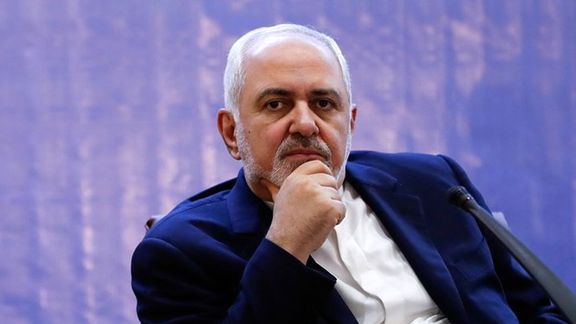
As attacks on Iran's former Foreign Minister Mohammad Javad Zarif continued following his latest policy statements, some media and politicians have defended him.
Zarif who was the main speaker at a five-hour long audio discussion on the social media app Club House earlier this week, defended his diplomatic approach of negotiations to reduce Western pressure on Iran.
The former foreign minister has long been a target of Iran’s hardliners as the supposed architect of the 2015 JCPOA nuclear deal and allegedly as a man inclined to forge better ties with the West. But in June these attacks intensified as Zarif began to tweet after a long silence.
The Raisi administration-owned daily Iran newspaper wrote Thursday that former Foreign Minister Zarif and former President Hassan Rouhani's foreign policy was nothing more than "begging the West for attention." The daily also charged that their policies were "marked by ignorance, confusion and naivety."
The daily added that Zarif and Rouhani's policies made the Iran's situation and its ties with other countries more complicated than ever. However, the newspaper did not specify its accusations with examples.
The daily wrote that their priority was redefining Iran's relations with the world, but their vision was limited to Europe and the United States. The statement was, of course, mindless of the fact that Iran's 25-year cooperation contract with China was signed under Rouhani with Zarif.
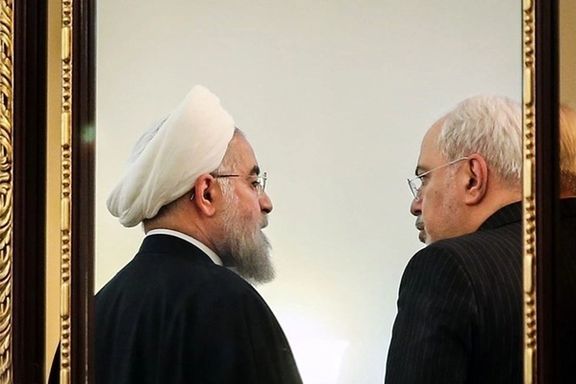
Iran daily also charged that Zarif's foreign policy was limited to furthering the talks over Iran's nuclear program. The daily further charged that Iran's ties with its neighbors were downgraded under President Rouhani.
In fact, it was Iran’s aggressive regional political and military policies and interventions in Syria and Yemen that soured it ties with Sunni Arab states. These policies were part of a grand strategy devised or at least approved by Supreme Leader Ali Khamenei, and not at the presidential level.
While under attack from the conservative camp Zarif said on Thursday that he has no plans whatsoever for the elections and added that he is not the kind of man who would run for the parliament, Zarif said that the controversy over his Clubhouse presence is rooted in the conservative's fear of his possible plans to run for President in 2025. He added that he has no plan to run for the post or to campaign for other politicians.
In the meantime, the editor of Jomhouri Eslami newspaper, Masih Mohajeri suggested that Zarif and his predecessor at the foreign ministry, Ali Akbar Salehi who later played a part in forging the 2015 JCPOA nuclear agreement, should take part in an open debate with the leading hardliners aligned with the current government who have been obstructing the nuclear talks for many years.
Mohajeri wrote that Iranians have a right to know what has happened to the talks and the nuclear program and such a debate can shed light on many ambiguities and show clearly who is right and who is lying about the other sides foreign, economic and domestic policies.
Also defending Zarif on Thursday was the centrist daily Ham Mihan, which attacked the Raisi administration and wrote that the current government portrays a disparaging image of its predecessor and characterizes its performance as "treasonous", while making a lot of fuss about its own meager achievements.
Ham Mihan wrote that the ruling politicians take advantage of the silence of the officials of the previous government and pass unilateral judgements about the Rouhani administration's track record without giving him and his aides a chance to freely respond to the accusations. Ham Miham further lashed out at the Raisi administration for lying about its "achievements" and not tolerating any criticism. The daily claimed that Raisi and his supporters hold more grudges against their political rivals than foreign enemies.
Foreign Policy expert Ghasem Mohebali defended Zarif by saying that what he said showed the difference between two approaches to national interests and the nuclear talks, adding that Zarif's approach was an example of efficiency while the new government's track record has all the signs of inefficiency.
Expediency Council member, moderate conservative politician Mohammad Sadr, on the other hand, defended Zarif and praised his performance regarding the nuclear deal, and attacked Raisi: "I have told Raisi that he is personally responsible for the economic problems resulting from the inconclusive situation of the nuclear talks under his government."
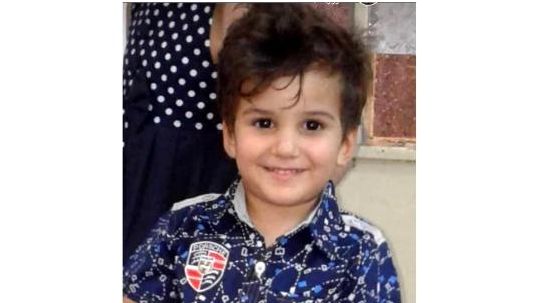
A nine-year-old Iranian boy has been killed after the police opened fire at his father's car in Iran's Khuzestan province on Friday.
Morteza Delf-Zargani’s father says the police started shooting at their car in the city of Shushtar without even a single warning and based on a false report of car theft.
According to the victim’s uncle, “when they saw the police car behind them, they intended to stop, but without any warning the police opened fire and Morteza died on the spot.”
The police claim they received reports about a car theft that fit the description of the family’s vehicle, and the officers ordered the suspect to pull over, but the driver did not pay attention to the warning and sped away.
In March, a two-year-old child was killed after Iranian special forces opened fire at the car carrying him and his family in the central city of Esfahan (Isfahan).
Morteza's case is also reminiscent of Kian Pirfalak, a 10-year-old boy who was killed by the Islamic Republic's security forces when they started shooting at his father's car during the 2022 protests.
Ironically, Morteza's death coincided with Kian's birthday anniversary.
Many innocent bystanders were killed by security forces during months of protests in 2022 and 2023. More than 500 people were shot or killed by security forces using deadly force.
Kian and his family were targeted by plainclothesmen during a night of protests in Izeh. Kian’s father was also paralyzed because of serious injuries he sustained during the attack. The government claimed “terrorists” had fired at the car, but Kian has become a public symbol of the regime’s brutality.

Iran’s security forces arrested dozens of families of the victims of state violence in two Kurdish cities where they gathered to commemorate their loved ones.
The families were from the cities of Dehgolan, Sanandaj, Divandareh and Saqqez, who had traveled on Friday to visit the graves of those killed during the nationwide protests in Bukan and Saqqez.
The petitioning families chanted, "We Will Stand Until the End" and "Woman Life Freedom".
In Aichi cemetery in Saqqez, where Mahsa Amini’s body is laid to rest, dozens held the pictures of their loved ones.
However, regime agents arrested and transferred about 40 of them to an unknown location, including six mothers of young victims.
During the recent protests in Iran, ignited by the death in custody of 22-year-old Amini in September 2022, security forces killed hundreds of people and many more received permanent injuries. More than 20,000 people, including university students, actors and journalists were also detained.
The authorities not only failed to accept any responsibility but they put pressure on some of the victims' families who made statements against regime officials during funerals or on social networks. Relatives of many victims killed by the government have been summoned for questioning and arrested.
According to human rights groups, the Islamic Republic has killed over 500 people, including at least 70 children, during its crackdown on the ongoing protests.

Iran's top Sunni cleric Mowlavi Abdolhamid on Friday slammed the government for spending the country’s money to help other nations and ignoring its own people.
He said the government fails to create jobs which forces many to engage in small criminal activities only to survive, and then hanged when they are caught.
In his sermon the outspoken Mowlavi (title for Sunni cleric) told his congregation in Zahedan, capital of southeastern Sistan-Baluchestan Province, that lack of jobs in his province and some other impoverished areas is the prime reason people are driven to smuggling fuel, minor drug-related offences, or drug trafficking.
In Iran gasoline and especially diesel are extremely cheap (around 10 US cents per gallon) due to heavy government subsidization. This leads to smuggling fuel to neighboring countries such as Pakistan which has long borders with Sistan-Baluchestan.
Many of these individuals, the cleric said, end up in prison or are even executed for committing crimes that involve profiting as little as 5 million rials ($10).

“People have to do all sorts of things just to earn their bread,” he told his congregation who took to the streets after the prayers for the 36th consecutive week to chant anti-government slogans.
Haal Vsh, a website dedicated to human rights and events in Iran’s Baluchestan, reported Friday that security forces cracked down on young Baluchis in various areas of Zahedan after the protests and arrested many.
The Sunni cleric who has proven to be the unofficial voice of the country’s Sunni population has become popular even among Shiites for standing up to the regime and delivering fiery speeches every week since September when the Women, Life, Freedom protests spread across the country.
In his sermon Abdolhamid also brought up the issue of justice for the victims of what has come to be known as the Bloody Friday of Zahedan. On September 30, 2022, security forces opened fire on civilian anti-government protesters killing more than 93 protesters including children and onlookers in Zahedan after Friday prayers.
“Carrying out justice would have brought tranquility and peace [to the locals],” he said. The government has not taken action against those security forces who opened fire on September 30.
“You never remedied our troubles or asked us about what gave us pain,” Abdolhamid said, adding that calm will not be established unless the complaints of workers, teachers, civil servants and pensioners are addressed and remedied.
As Sunni Muslims, Baluch citizens are both an ethnic and religious minority. Estimates of the Iranian Baluch population range from 1.5 to 2 million people. The Baluch community – along with the Kurds -- has always been among the most persecuted minorities and has the largest number of people executed in the country.
Most Baluchis are executed over drug-related charges, but activists say their trials lack due process and poverty-stricken drug mules are often executed without having had proper legal representation.
According to Haal Vsh, the execution of Baluch citizens has increased significantly since last year’s nation-wide protests. It said in a recent report that 182 people were executed in 23 prisons across Iran in the past year of which81% were drug-related.